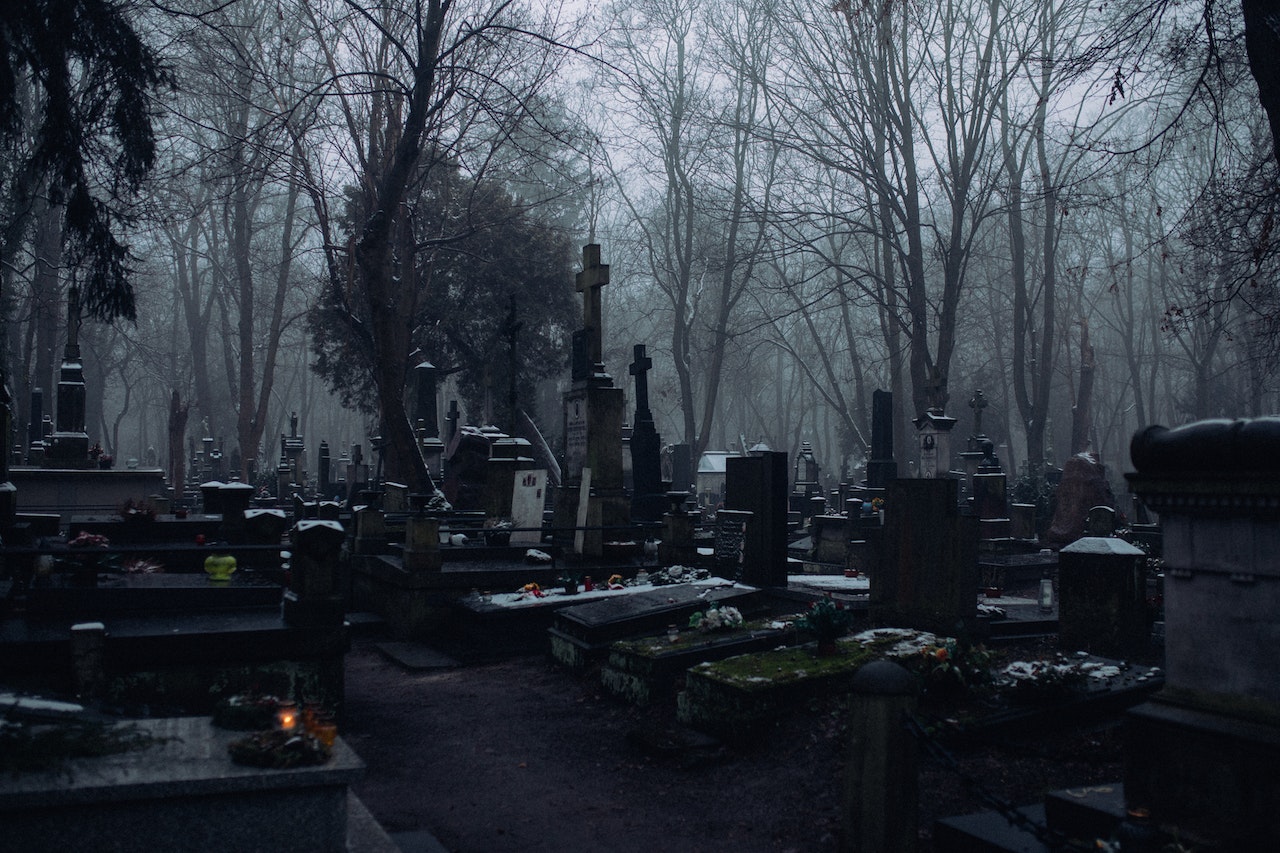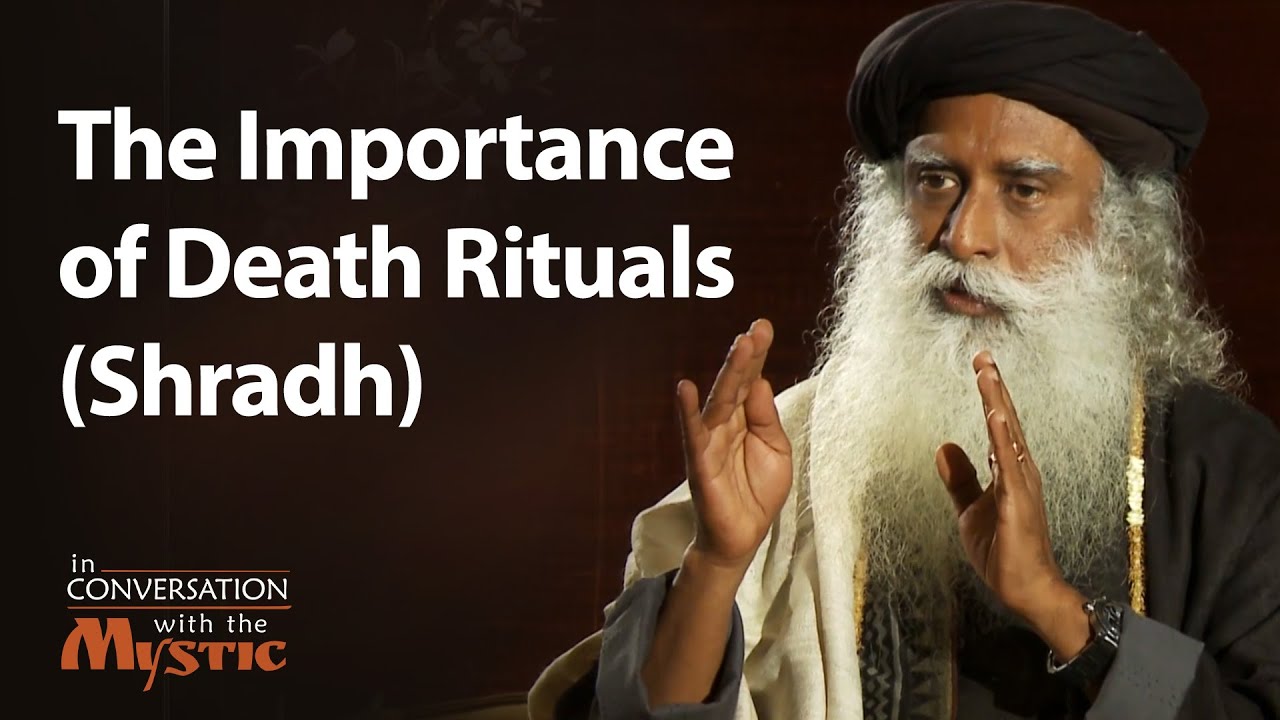What Is The Significance Of 13 Days After Death?
One such custom is observing a period of mourning that typically lasts for 13 days after the person's passing. But what is the significance of 13 days after death? Let’s explore it.
Author:Evelyn AdamsReviewer:Calvin PenwellMar 21, 202339.4K Shares743.8K Views

Losing a loved one is a painful experience that we all have to go through at some point in our lives. Different cultures and religions have various rituals and customs to help the bereaved cope with their grief and honor the memory of the deceased.
One such custom is observing a period of mourning that typically lasts for 13 days after the person's passing. But what is the significance of 13 days after death? Let’s explore it.
What Is The Significance Of 13 Days After Death?
In many cultures and religions, it is believed that the soul of the deceased remains present in this world for a certain period after their physical death. The length of this period varies, but in many traditions, it is believed to be around 40 days.
During this time, the soul is said to be in a state of transition, gradually detaching itself from the physical body and moving toward the afterlife.
In Hinduism, it is believed that the soul remains present on earth for 13 days after death. This period is known as the terahvin, and it is marked by a series of rituals and customs.
The family of the deceased observes a period of mourning and refrains from participating in any celebrations or auspicious events during this time. They also perform various rituals to help the soul of the deceased transition to the afterlife.
Similarly, in Buddhism, it is believed that the soul remains present on earth for 49 days after death. During this time, the family of the deceased performs various rituals and prayers to help the soul move toward enlightenment and liberation from the cycle of rebirth.
In Christianity, it is believed that the soul of the deceased immediately goes to either heaven or hell after death, depending on their deeds in life. However, many Christians also observe a period of mourning and remembrance for the deceased, typically lasting for a week or two after the person's passing.
The Customs And Rituals Of The Terahvin
As mentioned earlier, the period of terahvin in Hinduism is marked by a series of customs and rituals. Let's take a closer look at some of these practices:
The Bathing Ceremony
On the first day of the terahvin, the family of the deceased performs a bathing ceremony for the soul of the deceased. This involves bathing a statue or photograph of the deceased with holy water and offering flowers and other offerings.
The Lighting Of The Lamp
During the terahvin, a lamp is lit in the house of the deceased every evening. This lamp is meant to guide the soul of the deceased toward the afterlife.
The Feeding Of The Priests
Throughout the terahvin, the family of the deceased feeds a group of priests who perform various rituals and prayers for the soul of the deceased. This is believed to help the soul of the deceased attain a higher state of consciousness.
The Offering Of Pinda
On the thirteenth day of the terahvin, a ritual called pinda daan is performed. This involves offering food and other offerings to the ancestors of the deceased. It is believed that by doing this, the soul of the deceased is able to move on to the afterlife and attain moksha, or liberation from the cycle of rebirth.
The Importance Of Mourning
The period of mourning after the death of a loved one is an important time for the bereaved to come to terms with their loss and begin the process of healing.
During this time, it is common for family members to refrain from participating in any celebrations or auspicious events, as a signof respect for the deceased.
Mourning also provides an opportunity for family members to come together and support one another during this difficult time. Many cultures and religions have specific customs and rituals to help the bereaved cope with their grief and honor the memory of the deceased.
These rituals can be comforting and provide a sense of closure, helping the bereaved to accept their loss and move forward.
Other Beliefs And Customs Related To Death
In addition to the period of mourning after death, many cultures and religions have other beliefs and customs related to death and the afterlife. Let's take a look at some of these practices:
Reincarnation
In Hinduism and Buddhism, it is believed that the soul of the deceased is reborn in a new body after death. This is known as reincarnationand is based on the idea that the soul is eternal and constantly evolving.
The cycle of birth, death, and rebirth continues until the soul achieves enlightenment and is liberated from the cycle of rebirth.
Ancestor Worship
In many cultures, ancestor worship is an important aspect of the afterlife. This involves honoring and worshiping one's ancestors, who are believed to have a powerful influence on the lives of their descendants. Ancestor worship is commonly practiced in China, Japan, and other Asian countries.
Funerary Rites
Funerary rites are customs and rituals associated with the disposal of the deceased's body. Different cultures and religions have different practices for funerary rites. For example, in Hinduism, cremation is the preferred method of disposal, while in Christianity, burial is more common.
Ghosts And Spirits
In many cultures, it is believed that the souls of the deceased can return to the physical world as ghosts or spirits. These entities are often thought to be malevolent and can cause harm to the living. To protect themselves from ghosts and spirits, people may perform various rituals or wear protective amulets.
Different Ways To Express Condolences To Someone Who Has Lost A Loved One
When someone loses a loved one, it can be difficult to know what to say or do to express your condolences. It's important to remember that everyone grieves differently, and there is no one "right" way to express sympathy.
Some people may find comfort in talking about their loved ones and sharing memories, while others may prefer space and privacy.
One way to express condolences is to simply listen and be present for the bereaved. Offer to help with practical tasks like cooking, cleaning, running errands, or simply offer a listening ear. Sending a thoughtful card or a small gift can also be a meaningful way to show you care.
It's important to avoid saying things that may unintentionally minimize or invalidate the person's grief, such as "they're in a better place now" or "everything happens for a reason." Instead, focus on acknowledging their pain and offering your support in whatever way feels most helpful.

The Importance of Death Rituals (Shradh) | Sadhguru
How To Navigate The Difficulties Of Planning A Funeral?
Planning a funeral can be a difficult and emotional process, especially in the midst of grief. It's important to take the time to consider the wishes and preferences of the deceased, as well as the needs and desires of the bereaved.
One of the first steps in planning a funeral is to choose a funeral home or service provider. Do some research to find a provider that fits your needs and budget, and make sure to ask questions about the services they offer and their pricing.
Next, consider the type of service you would like to have. This may include a traditional funeral, a memorial service, or a celebration of life. Think about the location, the guest list, and any special touches that would be meaningful to the deceased or the bereaved.
It's also important to consider the financial aspects of planning a funeral, as the costs can quickly add up. Make sure to get an itemized list of all expenses upfront, and consider options like cremation or a green burial if cost is a concern.
Finally, don't hesitate to ask for help and support during this process. Friends and family members can be a source of comfort and assistance, and a funeral director can help guide you through the practical aspects of planning a funeral.
People Also Ask
What Is The Role Of Music In Mourning And Grieving?
Music can be a powerful tool for expressing emotions and finding comfort during times of grief. It can also serve as a way to connect with others who are experiencing similar emotions and can be incorporated into memorial services or tributes.
How Can You Talk To Your Children About Death And Dying?
Be honest and age-appropriate, use clear language, and encourage questions and discussion.
What Is An End-Of-Life Doula, And How Can They Help During The Dying Process?
An end-of-life doula is a trained professional who provides emotional, spiritual, and practical support to individuals and families during the dying process.
What Are Some Common Myths And Misconceptions About Grief And Mourning?
Myths about grief include the idea that there is a "right" way to grieve, that time heals all wounds, and that strong emotions like anger or guilt are signsof weakness.
Conclusion
We believe you now have all the information you need about what is the significance of 13 days after death. In many cultures and religions, this period lasts for 13 days after death, during which the family of the deceased performs various customs and rituals to help the soul of the deceased transition to the afterlife.
Beliefs and customs related to death and the afterlife vary widely across different cultures and religions. Some people believe in reincarnation, while others believe in heaven or hell.
Ancestor worship, funerary rites, and the existence of ghosts and spirits are also common beliefs and practices. Regardless of the specific beliefs and customs, these practices provide comfort and support to the bereaved during difficult times.
Jump to
What Is The Significance Of 13 Days After Death?
The Customs And Rituals Of The Terahvin
The Importance Of Mourning
Other Beliefs And Customs Related To Death
Different Ways To Express Condolences To Someone Who Has Lost A Loved One
How To Navigate The Difficulties Of Planning A Funeral?
People Also Ask
Conclusion

Evelyn Adams
Author
Evelyn Adams is a dedicated writer at Kansas Press, with a passion for exploring the mystical and uncovering hidden meanings.
Evelyn brings a wealth of knowledge and expertise to her insightful articles. Her work reflects a commitment to providing accurate information, thoughtful analyses, and engaging narratives that empower readers to delve into the mysteries of the universe.
Through her contributions, Evelyn aims to inspire curiosity, spark imagination, and foster a deeper understanding of the supernatural world.

Calvin Penwell
Reviewer
Since diving into numerology in 1997, my path has been marked by extraordinary encounters and insights. A pivotal moment was uncovering a forgotten numerological manuscript in a tucked-away Italian library, which deepened my connection to the ancient wisdom of numbers. Another transformative experience was a meditation retreat in Nepal's tranquil mountains, where I honed my intuition and the art of interpreting numerical vibrations.
These adventures have not only enriched my numerological practice but also my ability to guide others towards understanding their destiny and life's purpose. My approach is deeply personal, rooted in a blend of historical knowledge and intuitive insight, aimed at helping individuals find their alignment with the universe's abundant energies. My mission is simple: to share the power of numerology in illuminating paths to abundance and fulfillment.
Latest Articles
Popular Articles
